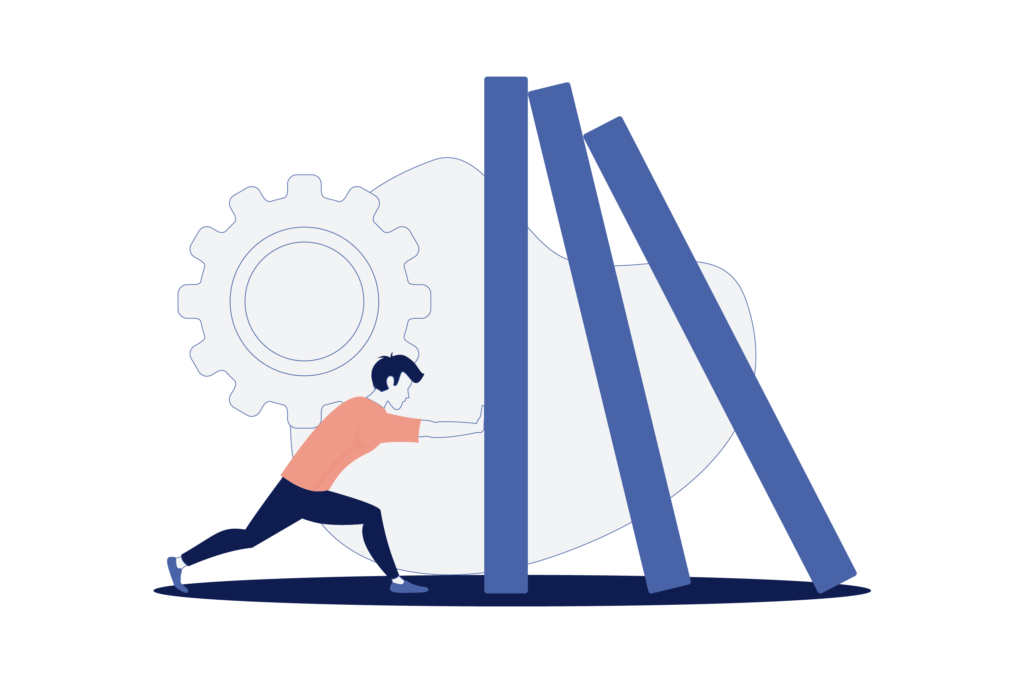Resilience and perseverance are two qualities that we almost always associate with entrepreneurs.
Think about anyone you know who’s ever started a business. How would you describe their character? Do they have grit, determination, a bit of a thick skin? Are they the kind of person willing to put up with some (or a lot) of discomfort to achieve their goals? The odds are that you’ll be able to check most – if not all – of those boxes.
Notice that the title of this article says successful entrepreneurs. Launching and building any kind of business is incredibly challenging, and the percentile failure rate of new businesses is enough to scare anyone off.
But, for those who believe in the power of their dreams, and who are willing to embrace the necessity of perseverance and resilience, the sky’s the limit.
Are Entrepreneurs Born or Are They Made?
Are entrepreneurs born, or are they made? It’s a question as old as time. Is there some mysterious kind of ‘X- factor’ that great entrepreneurs are born with? Do they have a genetic advantage that the rest of us don’t?
Short answer: no. What they do have is a number of characteristics that anyone can learn and develop, along with perseverance and resilience. Here are just some of those key characteristics:
- Entrepreneurs all have a strong work ethic – and they know that there are proven ways to develop a work ethic.
- Smart Entrepreneurs embrace discomfort and even failure as being a necessary part of growth.
- They remain teachable because they are always willing to learn from others.
- Entrepreneurs seek out growth opportunities, both personally and in business.
- They are great at developing an unshakeable sense of self-worth.
These are all skills that can be learned. And this is why:
Crystalline Intelligence vs Fluid Intelligence
Psychologists tell us that there are two types of intelligence (or the ability to transform thought into action).
One of these is called crystalline intelligence, which is simply a way of describing the beliefs and filters that are hardwired into us from a young age – things that we believe are ‘set’ and cannot be changed. Of course, some of these beliefs can be quite self-limiting!
Fluid intelligence is the ability to wire new skills and beliefs into ourselves. And it is this fluid intelligence that actually determines how much resilience and perseverance we ultimately develop. Another way of describing this is to think of it as the classic ‘talent vs hard work’ debate: with all else being equal, which of the two is most likely to bring you success?
Studies have overwhelmingly shown that ‘talent’ is linked to crystalline intelligence: the belief that an individual only has a finite amount of ‘talent’, and that if the talent fails in some area, well, that’s as far as you can progress. Fluid intelligence, on the other hand, is linked to good old hard work and teachability – again, linked to perseverance and resilience – and there’s no upper limit on what it can accomplish.
Guess which one is more important to entrepreneurs?
Resilience and Perseverance: Being Comfortable In Chaos
The business of being an entrepreneur is most often fast-paced and filled with unexpected twists and turns. And it’s here that resilience and perseverance are absolutely essential.
Willing to fail: Successful entrepreneurs do not fear failure, because they understand that it’s an important part of the learning process. Just like learning how to walk, there will be falls and bumps!
Embracing uncertainty: Entrepreneurs also understand that even the best-laid plans can quickly go off track. They’re willing to deal with the ‘fog of war’.
Moving forward: Successful entrepreneurs cultivate the resilience and perseverance to keep going, no matter what. They understand that ‘freezing’ in uncertainty or fear leads to stagnation, but constant forward pressure brings growth – and they understand why business growth matters.
Why Just Having Goals Is Not Enough
Having strong, clear goals – in life and in business – is a powerful motivator. Why, then, do we so often fail to achieve them?
The answer: fear. Subconsciously, we often sabotage ourselves without even realizing it. Because successful entrepreneurs know this, they find ways to overcome or harness that fear. A very effective way to develop resilience and perseverance in the face of fear is to stop focusing on goals for a bit, and rather do something that can seem quite scary and counterintuitive instead.
Renowned entrepreneur, investor, and author Tim Ferris calls this exercise fear setting. And it’s simple: once every few weeks, he devotes time to vividly visualizing everything that could go disastrously wrong. And so he reminds himself that he realistically has the perseverance and resilience to recover from it. Even in an absolute worst-case scenario.
By confronting our worst fears, we develop the ability to overcome them.

What Perseverance and Resilience Really Mean
Resilience means, quite literally, the ability to persevere in spite of adversity.
It has less to do with ‘strength’, and more to do with the ability to be fluid and adaptable. Charles Darwin famously said: “It is not the strong who survive, but those who adapt most quickly to change.”
The takeaway for entrepreneurs? Simply this: Expect change and don’t be rigid.
How to Build Resilience and Perseverance in Yourself and Your Business
Resilience and perseverance are qualities that become habits if you practice them often enough.
Here are 4 essential reminders of what you should be doing as well as reviewing, often:
- Channel your inner warrior. Yes, it sounds cheesy, but it’s no coincidence that strong fighting spirit wins battles!
- Have faith in your abilities. You’re far stronger than you think. Dig deep and challenge yourself.
- Don’t lose sight of your vision. Return to it in times of doubt or fear and move forward!
- Embrace reinvention. Don’t hang on to things that no longer serve you – even if that means a deliberate remake of your persona and identity to reflect your growth.
She Started Over at 94
Looking for some inspiration?
Rose Blumkin was a Russian immigrant who emigrated to the US in 1917. She started a furniture store which became Nebraska Furniture Mart. Even though she was unable to speak English, and was desperately poor. Warren Buffet bought it many years later, in 1983. Because Rose was elderly at the time, she could have easily retired with the money she’d made. Her life is a masterclass in resilience and perseverance.
Instead, at the age of 94, Rose Blumkin started over – with a new store – right across the road from the one she’d sold! Rose Blumkin was probably the most resilient entrepreneur you’d ever encounter, later passing away at the age of 103, and earning lifelong admiration and praise from one of the world’s wealthiest men.
No Entrepreneur Is an Island
A skill common to all successful entrepreneurs is the ability to collaborate, outsource, and also to cleverly manage time and resources. And one of the easiest and most cost-effective ways of doing that is to hire a virtual assistant to help stabilize your core business functions while you get on with the business of visionary planning, growth – and yes, building valuable resilience into your business as you achieve your goals.
Want to find out more?
Book a Discovery Call with MYVA360 today and find out just how valuable a virtual assistant can be to your business.





